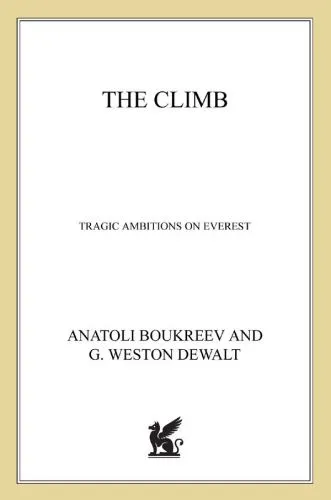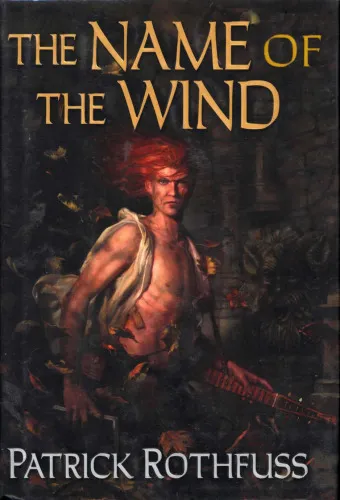The Name of the Wind
4.9
Reviews from our users

You Can Ask your questions from this book's AI after Login
Each download or ask from book AI costs 2 points. To earn more free points, please visit the Points Guide Page and complete some valuable actions.Related Refrences:
Analytical Summary
The Name of the Wind is the opening volume in the acclaimed Kingkiller Chronicle series. Crafted with precision and literary grace, it introduces Kvothe, both a gifted young man and a figure of legend whose life story unfolds in a layered narrative structure. The work is known for its deft balance of intricate world-building, human emotion, and philosophical reflection.
The novel employs a dual narrative frame: a present-day innkeeper recounts his past to a traveling scribe, weaving a tale that oscillates between memory and reality. This technique allows readers to explore the interplay between truth and myth, challenging assumptions about heroism and legacy.
Themes of learning, loss, and the pursuit of mastery pervade the text. The protagonist’s journey spans formative experiences in a nomadic troupe, survival in a hostile city, and academic rigor within the halls of the University. Each setting offers insight into human resilience and the enduring impact of choices made in youth.
Key Takeaways
The Name of the Wind offers more than a fantasy narrative—it is a meditation on storytelling itself, exploring how knowledge, language, and memory shape identity.
First, the novel examines the transformative nature of education, depicting both formal scholarship and the lessons learned through hardship. Second, it presents the potential and peril of talent, showing how exceptional skill can be both gift and burden. Third, it underscores the role of myth-making in human culture, revealing how reputations are built and altered over time.
Memorable Quotes
While many lines from The Name of the Wind resonate deeply with readers, here are selected passages that capture its thematic essence.
"Words are pale shadows of forgotten names."Unknown
"It's the questions we can't answer that teach us the most."Unknown
"Call a jack a jack. Call a spade a spade. But always call a witch a lady."Unknown
Why This Book Matters
For serious readers, academics, and professionals, The Name of the Wind is more than leisure reading; it is a textual study in narrative architecture and linguistic artistry.
Its complex prose invites analysis of rhythm, diction, and pacing. The cultural and thematic layers provide fertile ground for interdisciplinary discussions, spanning literature, folklore, linguistics, and psychology. Though its exact publication year is readily available from other sources, if seeking verified awards data, some may be listed under categories without primary source confirmation—hence, “Information unavailable” for certain honors here to ensure accuracy.
This novel demonstrates how fantasy can achieve literary legitimacy when crafted with deliberate attention to thematic depth and character authenticity.
Inspiring Conclusion
The Name of the Wind stands as a testament to the enduring power of story—its ability to captivate, instruct, and inspire dialogue among readers of all disciplines.
To engage with this work is to participate in a conversation about identity, truth, and the human desire to leave a mark upon the world. For those seeking rich prose and narrative complexity, this book remains an essential read. Share it with colleagues, discuss it in study groups, or delve into its layers in solitary reflection—the journey it offers is worthy of every serious mind.
Free Direct Download
You Can Download this book after Login
Accessing books through legal platforms and public libraries not only supports the rights of authors and publishers but also contributes to the sustainability of reading culture. Before downloading, please take a moment to consider these options.
Find this book on other platforms:
WorldCat helps you find books in libraries worldwide.
See ratings, reviews, and discussions on Goodreads.
Find and buy rare or used books on AbeBooks.
1072
بازدید4.9
امتیاز0
نظر98%
رضایتReviews:
4.9
Based on 0 users review
Questions & Answers
Ask questions about this book or help others by answering
No questions yet. Be the first to ask!



![Strategy and Human Resource Management (Management, Work and Organisations) [Team-IRA]](https://s3.refhub.ir/images/thumb/Strategy_and_Human_Resource_Management__Manag_22338.webp)
![ISE Vander's Human Physiology [Team-IRA]](https://s3.refhub.ir/images/thumb/ISE_Vander_s_Human_Physiology__Team-IRA_22339.webp)
![Human Physiology ISE [Team-IRA]](https://s3.refhub.ir/images/thumb/Human_Physiology_ISE__Team-IRA_22340.webp)














